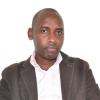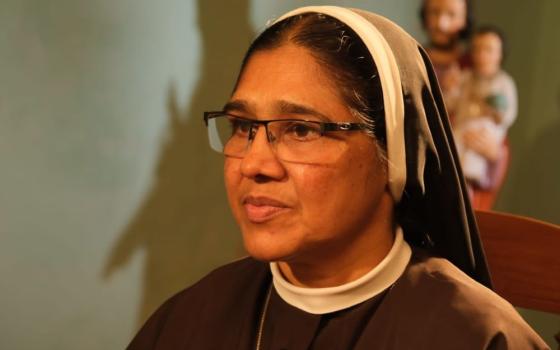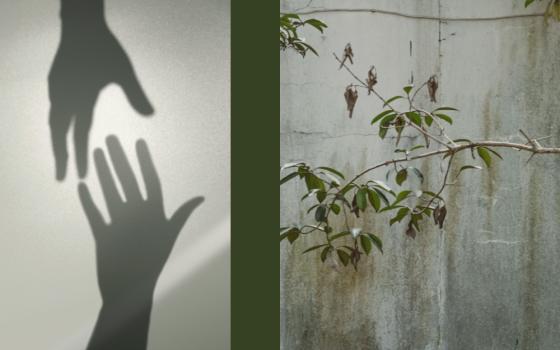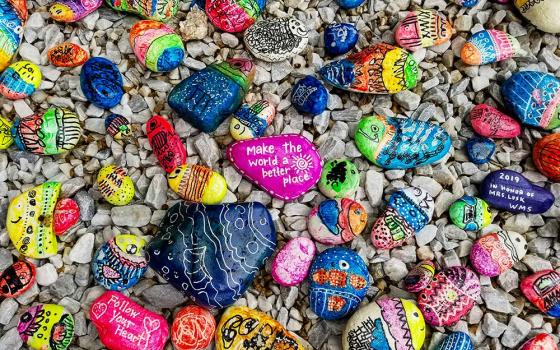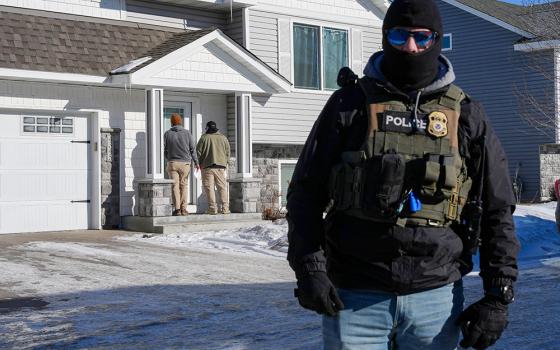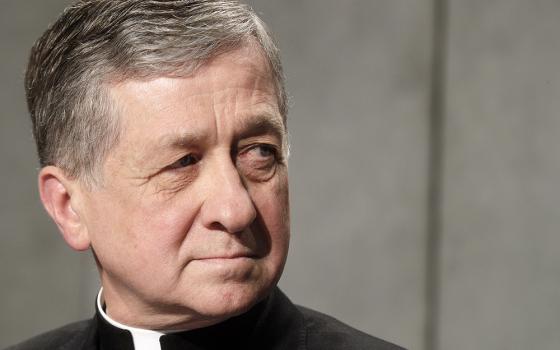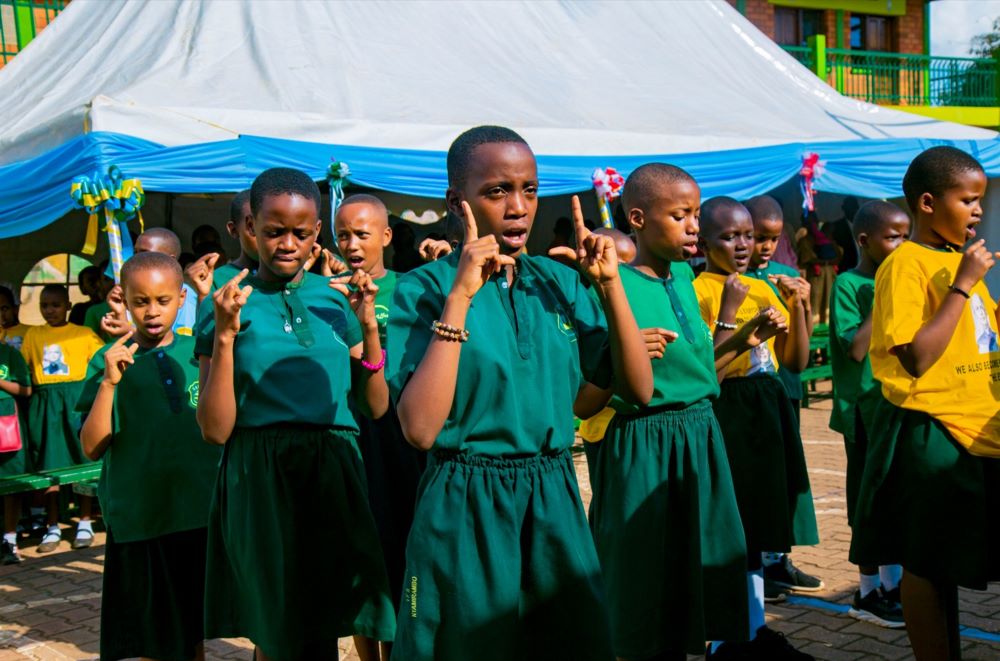
The mission of the Salesian Sisters of the Sacred Hearts in Rwanda includes several apostolic activities following the charism that their founder, Filippo Smaldone, began in the 19th century: working with people who are deaf. (Aimable Twahirwa)
Jules Mugirase, a 12-year-old from Mageragere, a village on the outskirts of Kigali city, Rwanda, used to display a self-deprecating mentality due to his severe hearing loss. But things have changed since he enrolled at the Filippo Smaldone Institute, a school the Salesian Sisters of the Sacred Hearts run.
"I made many new friends at school, and thanks to the special support I am getting, this keeps encouraging me to do my best," Mugirase told Global Sisters Report.
The Salesian Sisters of the Sacred Hearts congregation was founded in 1885 by St. Filippo Smaldone, also known as the apostle of the deaf. Most of the congregation's mission since 1987 has focused on Rwanda, where the sisters assist members of the community in danger of social exclusion including students who are deaf or hard of hearing.
The institute in Nyamirambo, a suburb of the Rwandan capital city Kigali, currently enrolls about 207 children with hearing loss or deafness and more than 200 without disabilities.
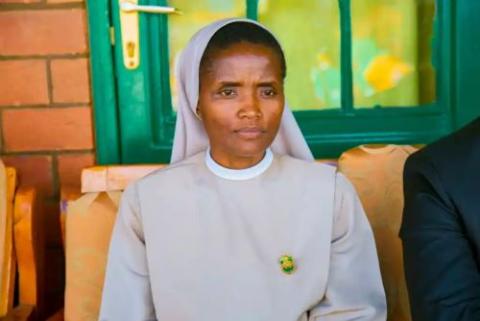
Salesian Sr. Therese Akayezu is head teacher at the Filippo Smaldone Institute in Nyamirambo, a suburb of the Rwandan capital city Kigali. (Aimable Twahirwa)
In addition to providing primary and secondary education, the institute has developed vocational courses tailored to prepare students for career development. They include special courses for students with vision and hearing disabilities.
Salesian Sr. Therese Akayezu, head teacher at the institute, said that by attending these classes and special programs with dedicated teachers, deaf or hard of hearing children can learn skills to master a profession.
"In our teaching methodology, we try to focus on improving self-esteem among children with hearing loss who sometimes develop lower self-esteem than hearing peers," Akayezu said.
Alphonse Munyankindi, whose son is learning baking at the Filippo Smaldone Institute, said his child has grown happier since returning to school.
"My son first developed hearing problems when he was 5 years old, and the situation continued to worsen, and he was no longer able to study at regular schools," Munyankindi said.
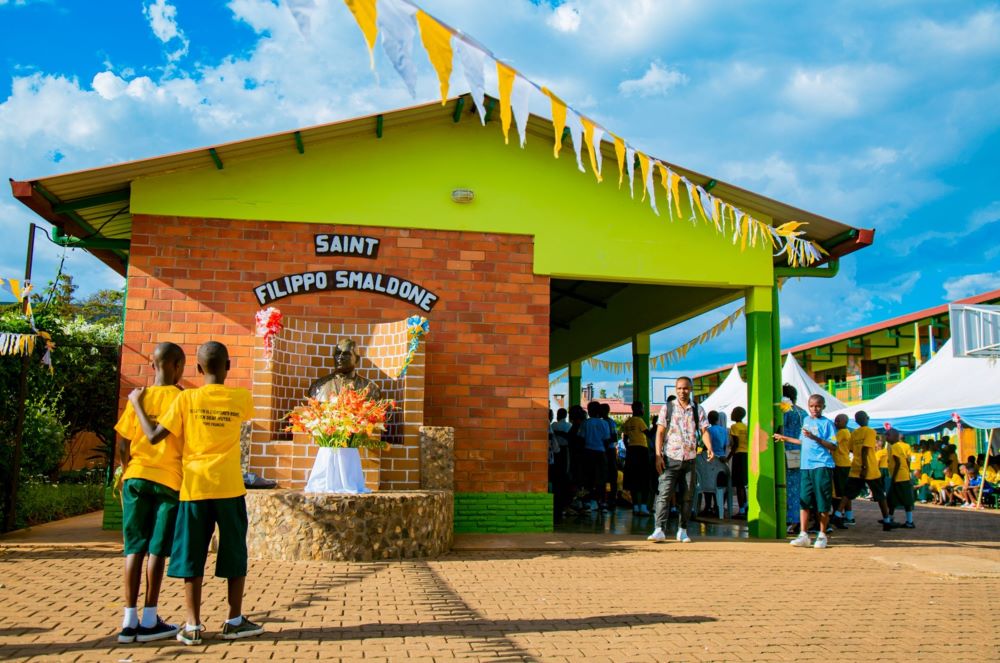
The Salesian Sisters of the Sacred Hearts have been running the Filippo Smaldone Institute for many years, providing education to vulnerable students, including those who are deaf or hard of hearing. (Aimable Twahirwa)
Despite public support by government agencies and stakeholders, including religious congregations such as the Salesian Sisters, the majority of parents in remote rural Rwanda do not know that their deaf and hard of hearing children have the right to study. Those who do attend school, tend to drop out because they are unable to learn in classrooms where education is based on oral teaching.
The attendance rate of Rwandan students 6-17 without disabilities is 82%, while the attendance rate for students with disabilities is at 65%, according to the Ministry of Education.
In 2023, the Rwandan Ministry of Education put forward several strategies to accelerate development of special education in line with the Marrakesh Treaty, which the country ratified in September 2020.
Rwanda's commitment to the Marrakesh Treaty also aims to facilitate access to published works for visually impaired people. It also advocates production and international transfer of digital books for people with visual impairments.
"The operationalization and enforcement of the Marrakesh treaty are critical to ensure the adaptation of learning materials in accessible formats by people with disabilities in Rwanda," Gaspard Twagirayezu, Rwandan minister of education, said at a public meeting about the treaty in 2021.
Figures from Rwanda's 2022 Ministry of Education yearbook indicate that of nearly 4.2 million learners in Rwanda's education system, about 39,000 have disabilities. Primary students include nearly 30,000 learners with disabilities; among pre-primary students, more than 2,700 have disabilities. About 4,900 secondary students have disabilities. One-third of Rwandan students with disabilities in both primary and secondary schools have hearing loss, the report says.
Schools like the Filippo Smaldone Institute appear to be succeeding in their efforts. The percentage of Rwanda's primary schools that meet accessibility standards for learners with disabilities increased from 38% to 70% between 2020 and 2022, the Ministry of Education reported. At the secondary level, the number of schools increased from 44% to 73% during the same period.
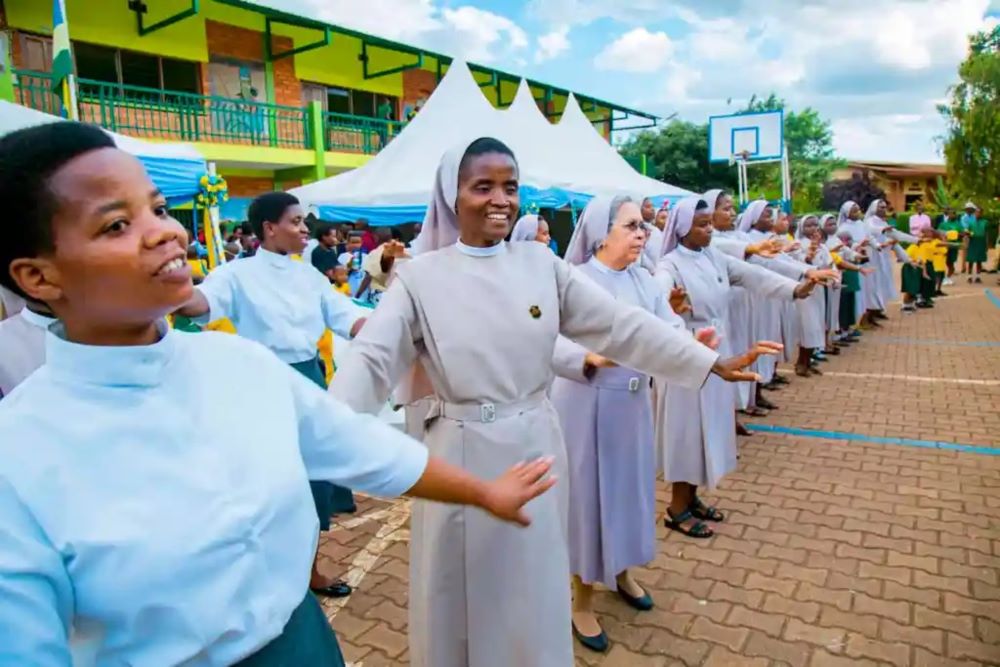
The mission of the Salesian Sisters of the Sacred Hearts in Rwanda includes several apostolic activities following the charism that the founder, Filippo Smaldone, began in the 19th century: working with people who are deaf. (Aimable Twahirwa)
Despite progress in recent years, there's still a need to improve inclusion in the country's education system.
Only 15%, representing 15,569 teachers across Rwanda, were trained in special needs and inclusive education, according to the Ministry of Education. There is an urgent need to train teachers in inclusive pedagogies. There are presently 3,301 schools (68%) with infrastructures that have been adapted to be accessible to learners with disabilities.
Although Rwanda has prioritized inclusion and mainstreaming so that hard of hearing students can attend regular classrooms, managers of the Filippo Smaldone Institute want to ensure that more deaf and hard of hearing students can attend specialized classrooms.
"Parents should understand that these hearing impaired children need to attend schools and learn how to use sign language as it creates for them a true learning experience […] children do not learn it in their homes," Akayezu said.
Advertisement
Parents and educators agree that teaching a deaf or hard of hearing student, whether in specialized or regular schools, depends on each individual’s ability to communicate.
"The most important thing is to create the conditions for this specific group of students in which they can learn," Jackson Ganishuli, whose hard of hearing daughter attends Filippo Smaldone Institute, told GSR.
With the support of the sisters, Fiona Mukundente, a 23-year-old mother with hearing impairments, has been able to complete the one-year intensive vocational sewing program at Filippo Smaldone Institute.
Mukundente and her peers improved their livelihoods after securing a loan from the Saving and Credit Cooperative Society (SACCO), a microfinance institution, to establish a modern sewing workshop at Kabeza, a suburb of Kigali city.
"Before joining hands with my peers in running a sewing workshop, I was unemployed and had nothing in terms of assets," Mukundente said."After starting this career, I started making money, bought a piece of land and can pay school fees for my siblings."
